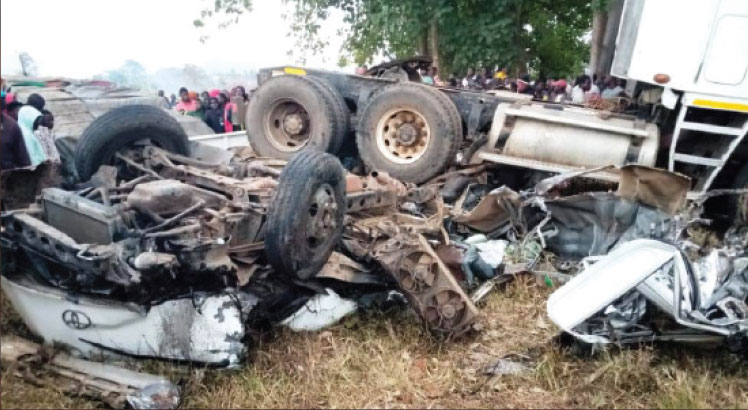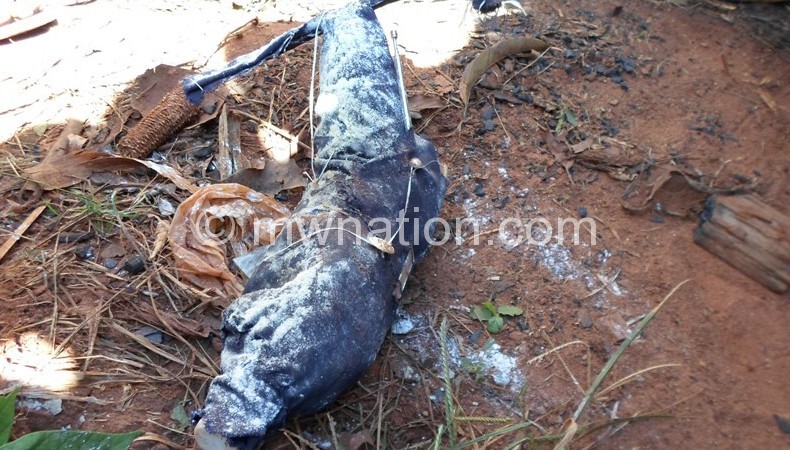Agriculture policy think-tank, Mwapata Institute, has decried the poor targeting and planning of social safety nets and farm inputs beneficiaries, leading to households benefiting from both.
While social safety nets and farm input subsidies play a significant role in cushioning households against shocks, it says current programmes are not fully benefiting the intended poor households.
Chakwera: Acknowledged duplication
President Lazarus Chakwera has since admitted the duplication, indicating that government will work on ensuring that safety nets are targeted differently.
A policy brief, titled Patterns of social safety nets, weather shocks, and household food security status in Malawi by Anderson Gondwe, Bonface Nankwenya and Joseph Goeb says there is lack of streamlining of interventions
It reads: “An increasing share of households benefit from multiple social safety nets and also receive both social safety nets and subsidised coupons, suggesting some evidence of a lack of streamlining of interventions in the existing programmes.
“Given their importance in helping households cope with the impact of shocks, both social safety nets and input subsidy programmes should be strengthened to address targeting issues which include cases of an increasing share of households benefiting from multiple social safety nets and also receiving both social safety nets and subsidized inputs.”
The brief is based on a study that uses nationally representative data from Integrated Household Surveys (IHSs) conducted by the National Statistical Office (NSO) in collaboration with World Bank from IHS3 (2010-11), IHS4 (2016-17), and IHS5 (2019-20).
It observes that many households face multiple shocks which affect their welfare, and as a coping mechanism, they resort to using their own savings, while a significant number of households do nothing.
Such shocks include unusually high food prices and high costs of agricultural inputs as well as weather shocks related to climate change such as drought, irregular rains, floods and landslides.
It adds: “In addition to the persistent nature of shocks, data also shows that households face multiple shocks, with the majority of households facing between one to five shocks over the past 12 months, with some of the households facing more than six shocks over the past 12 months.
“While 34 percent of households reported having experienced no shocks during 2010/11, almost all households reported that they experienced some form of shock in 2016/17 and 2019/20.”
Worse still, it said while a larger share of poor households received Farm Input Subsidy Programme coupons, the share of non-poor households benefiting from the programme is large for all the three survey years.
Speaking last Friday during the opening of the first meeting of the 50th session of Parliament and the 2023/2024 budget meeting, President Chakwera admitted that the lack of coordination in the rollout of these social protection results in duplication of beneficiaries.
He said government is implementing the Social Cash Transfer Programme (SCTP) targeting 292 000 ultra-poor households, Climate Smart Enhanced Public Works Programme (CSEPWP) targeting 380 000 ultra-poor households, but also the Affordable Inputs Programme (AIP).
He said: “This is why in this coming fiscal year, all social protection programmes will be under one Consolidated Safety Nets Programme that will enhance synergies by making sure that the three main safety nets, namely the SCTP, CSEPWP and AIP, are each more uniquely targeted, all of which will protect no less than 4 million of the poorest and most vulnerable Malawians against the worst effects of our economic winter.
“But if this Consolidated Safety Nets Programme is going to be sustainable and if we are going to graduate people from it, we have to boost productivity in the wider economy and generate the revenue necessary to do so.”
In 2020, over 2.6 million people in 581 775 households were determined to be food insecure, and despite implementing the AIP in 2021, over 1.6 million people in 367 395 households were still determined to be food insecure.
Government is currently supporting over 3.8 million Malawians in 847 421 households in all three regions of the country with food items or cash to buy food.
The post Chaos reigns in social protection programmes first appeared on The Nation Online.
The post Chaos reigns in social protection programmes appeared first on The Nation Online.
 Moni Malawi
Moni Malawi 

